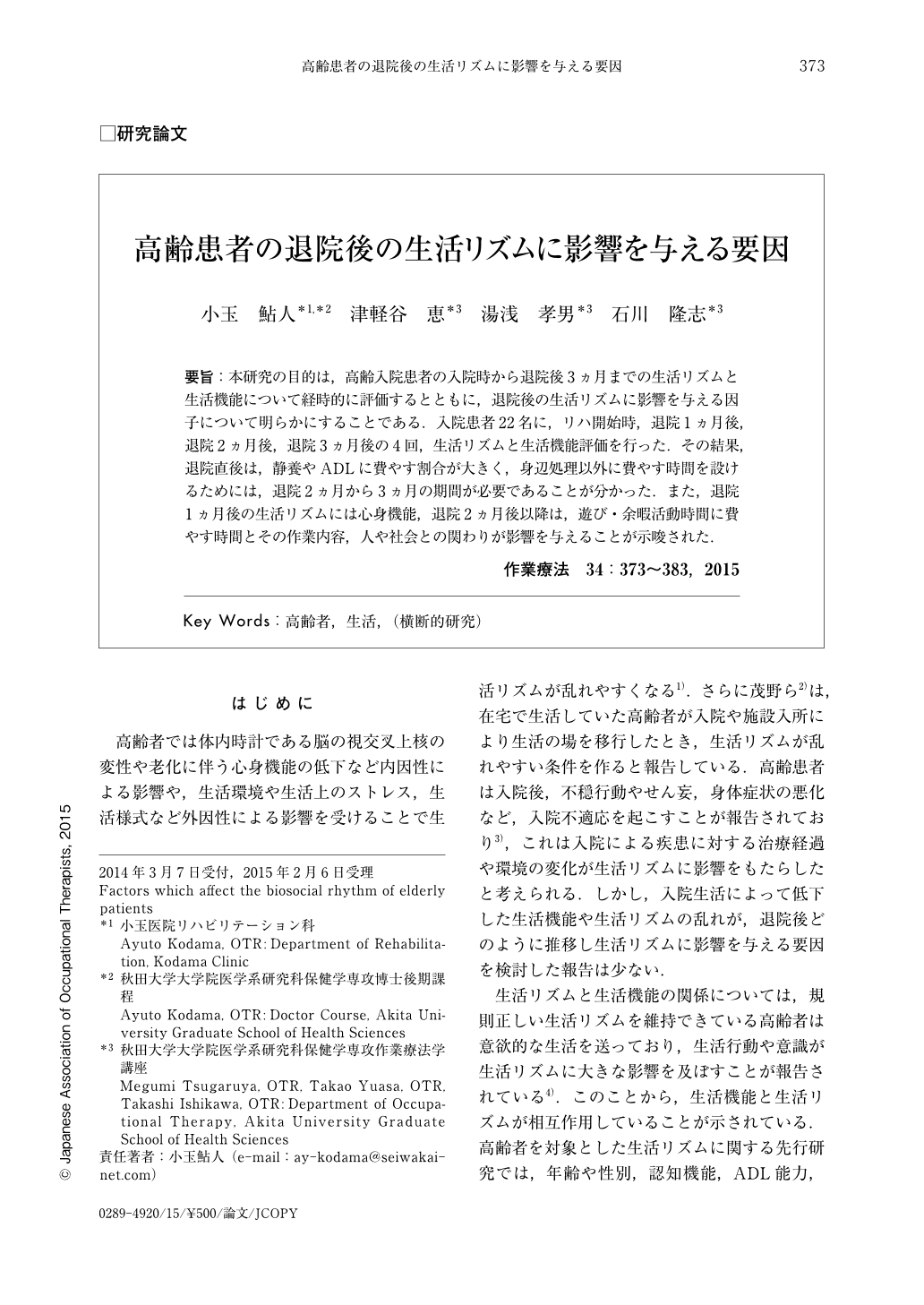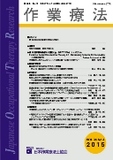Japanese
English
- 販売していません
- Abstract 文献概要
- 1ページ目 Look Inside
- 参考文献 Reference
- サイト内被引用 Cited by
要旨:本研究の目的は,高齢入院患者の入院時から退院後3ヵ月までの生活リズムと生活機能について経時的に評価するとともに,退院後の生活リズムに影響を与える因子について明らかにすることである.入院患者22名に,リハ開始時,退院1ヵ月後,退院2ヵ月後,退院3ヵ月後の4回,生活リズムと生活機能評価を行った.その結果,退院直後は,静養やADLに費やす割合が大きく,身辺処理以外に費やす時間を設けるためには,退院2ヵ月から3ヵ月の期間が必要であることが分かった.また,退院1ヵ月後の生活リズムには心身機能,退院2ヵ月後以降は,遊び・余暇活動時間に費やす時間とその作業内容,人や社会との関わりが影響を与えることが示唆された.
This study evaluated the bionomics and biosocial rhythm of elderly inpatients from admission until three months after discharge and clarified the factors affecting the biosocial rhythm after discharge. Bionomics and biosocial rhythm evaluation of 22 patients were conducted on admission and monthly for 3 months after discharge, for a total of 4 times. Results indicate that a period of 2 to 3 months is necessary to be able to engage in activities other than resting and ADL. It is suggested that the biosocial rhythm of the mind and body functions 1 month after discharge. The biosocial rhythm 2 months later was affected by the relationship of a person to society, occupation and lifestyle, as well as by time spent on leisure. Furthermore, the biosocial rhythm one month later appeared to be affected by mind and body functions. The biosocial rhythm two months later was affected by the relationship of the person to society, occupation and life range, and time spent on leisure.

Copyright © 2015, Japanese Association of Occupational Therapists. All rights reserved.


